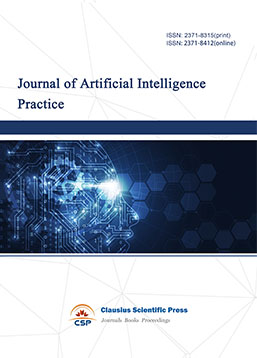Improvement of K-means Clustering Algorithm Based on Quantum State Similarity Measurement
DOI: 10.23977/acss.2025.090202 | Downloads: 22 | Views: 715
Author(s)
Hongfei Zhang 1, Mingwei Li 1
Affiliation(s)
1 Northeastern University at Qinhuangdao, Qinhuangdao, 066004, China
Corresponding Author
Mingwei LiABSTRACT
The classical K-means clustering algorithm is widely used in various fields due to its simple implementation and efficient computation, but the classical K-means clustering algorithm relies on the random selection of the initial center of mass, which is prone to fall into the deadlock of local optimality. In order to break through this limitation, the quantum K-means clustering algorithm is introduced, which is able to explore multiple potential clustering center combinations at the same time through the parallelism of quantum computation, so as to have a greater probability of converging to the globally optimal solution. Quantum K-means clustering algorithms typically employ fidelity as a similarity measure between quantum states, and similarity is assessed by calculating the probability of overlap between quantum states. However, the fidelity only quantizes the pure state information of the quantum states and ignores the classical statistical features of the data itself, which may lead to unreasonable clustering boundaries in mixed state or noise interference scenarios. In response to the above problems, this paper proposes an improved quantum-classical hybrid similarity metric, whose core idea is to incorporate the dual constraints of quantum information and classical features.
KEYWORDS
Quantum K-means clustering; Quantum state encoding; Similarity metrics for quantum-classical mixingCITE THIS PAPER
Hongfei Zhang, Mingwei Li, Improvement of K-means Clustering Algorithm Based on Quantum State Similarity Measurement. Advances in Computer, Signals and Systems (2025) Vol. 9: 10-18. DOI: http://dx.doi.org/10.23977/acss.2025.090202.
REFERENCES
[1] Shor P. Algorithms for quantum computation: discrete logarithms and factoring[J]. In Proceedings of 35th Annual Symposium on the Foundations of Computer Science, IEEE Computer Society Press, Los Alamitos, CA, 1994:124-134.
[2] Grover L K. A fast quantum mechanical algorithm for database search[C]. Proceedings of the twenty-eighth annual ACM symposium on Theory of computing, 1996: 212-219.
[3] Anguita D, Ridella S , Rivieccio F ,et al. Quantum optimization for training support vector machines[J]. Neural Networks, 2003, 16(5-6):763-770.
[4] Ruan Y, Chen H W, Liu Z H, et al. Quantum Principal Component Analysis Algorithm[J]. Chinese Journal of Computers, 2014.
[5] Kerenidis I, Landman J. Quantum spectral clustering[J]. Physical Review A, 2021, 103(4): 042415.
[6] Wiebe N, Kapoor A, Svore K. Quantum Nearest-Neighbor Algorithms for Machine Learning[J]. Quantum Information & Computation, 2014, 15:0318-0358.
[7] Khan S U, Awan A J, Vall-Llosera G. K-Means Clustering on Noisy Intermediate Scale Quantum Computers[J]. arXiv preprint arXiv:1909.12183, 2019.
[8] Arthur D, Date P. Balanced k-means clustering on an adiabatic quantum computer[J]. Quantum Information Processing, 2021, 20(9): 294.
[9] Ohno H. A quantum algorithm of K-means toward practical use[J]. Quantum Information Processing, 2022, 21(4).
[10] DiAdamo S, O’Meara C, Cortiana G, et al. Practical quantum k-means clustering: Performance analysis and applications in energy grid classification[J]. IEEE Transactions on Quantum Engineering, 2022, 3: 1-16.
| Downloads: | 40897 |
|---|---|
| Visits: | 812299 |
Sponsors, Associates, and Links
-
Power Systems Computation

-
Internet of Things (IoT) and Engineering Applications

-
Computing, Performance and Communication Systems

-
Journal of Artificial Intelligence Practice

-
Journal of Network Computing and Applications

-
Journal of Web Systems and Applications

-
Journal of Electrotechnology, Electrical Engineering and Management

-
Journal of Wireless Sensors and Sensor Networks

-
Journal of Image Processing Theory and Applications

-
Mobile Computing and Networking

-
Vehicle Power and Propulsion

-
Frontiers in Computer Vision and Pattern Recognition

-
Knowledge Discovery and Data Mining Letters

-
Big Data Analysis and Cloud Computing

-
Electrical Insulation and Dielectrics

-
Crypto and Information Security

-
Journal of Neural Information Processing

-
Collaborative and Social Computing

-
International Journal of Network and Communication Technology

-
File and Storage Technologies

-
Frontiers in Genetic and Evolutionary Computation

-
Optical Network Design and Modeling

-
Journal of Virtual Reality and Artificial Intelligence

-
Natural Language Processing and Speech Recognition

-
Journal of High-Voltage

-
Programming Languages and Operating Systems

-
Visual Communications and Image Processing

-
Journal of Systems Analysis and Integration

-
Knowledge Representation and Automated Reasoning

-
Review of Information Display Techniques

-
Data and Knowledge Engineering

-
Journal of Database Systems

-
Journal of Cluster and Grid Computing

-
Cloud and Service-Oriented Computing

-
Journal of Networking, Architecture and Storage

-
Journal of Software Engineering and Metrics

-
Visualization Techniques

-
Journal of Parallel and Distributed Processing

-
Journal of Modeling, Analysis and Simulation

-
Journal of Privacy, Trust and Security

-
Journal of Cognitive Informatics and Cognitive Computing

-
Lecture Notes on Wireless Networks and Communications

-
International Journal of Computer and Communications Security

-
Journal of Multimedia Techniques

-
Automation and Machine Learning

-
Computational Linguistics Letters

-
Journal of Computer Architecture and Design

-
Journal of Ubiquitous and Future Networks


 Download as PDF
Download as PDF